#salt houses
Text
Palestinian Own Voices Reading List
If you’re looking for books to read to help support Palestine and Palestinians through this current aggression and genocidal actions, I’ve created a list for you to look through. These books are all available through Bookshop.org, and may be available through your local libraries.
My Father Was A Freedom Fighter: Gaza's Untold Story, by Ramzy Baroud
Palestinian Walks: Forays Into a Vanishing Landscape, by Raja Shehadeh
In the Presence of Absence, by Richard Widerkehr
On Zionist Literature, by Ghassan Kanafani
Wondrous Journeys in Strange Lands, by Sonia Nimir
Power Born of Dreams: My Story Is Palestine, by Mohammad Sabaaneh
Stories Under Occupation: And Other Plays from Palestine, by Samer Al-Saber
Palestine Is Throwing a Party and the Whole World Is Invited: Capital and State Building in the West Bank, by Kareem Rabie
Rifqa, by Mohammed El-Kurd
Of Noble Origins: A Palestinian Novel, by Sahar Khalifeh
My First and Only Love, by Sahar Khalifeh
Salt Houses, by Hala Alyan
L.J. Stanton
#book list#book recommendations#Palestinian books#Palestine#Palestinian authors#support Palestine#my father was a freedom fighter book#palestinian walks#in the presenceo f absence#on zionist literature#wondrous journeys in strange lands#power born of dreams: my story is palestine#stories under occupation: and other plays from palestine#palestine is throwing a party#rifqa#of noble origins#my first and only love#salt houses
274 notes
·
View notes
Text

“What is a life? A series of yeses and noes, photographs you shove in a drawer somewhere, loves you think will save you but that cannot. Continuing to move, enduring, not stopping even when there is pain. That's all life is, he wants to tell her. It's continuing.”
― Hala Alyan, Salt Houses
#thebookferret#books#booklr#book worm#book nerd#book pets#book addict#book photography#bibliophile#ferret#ferrets of tumblr#pets of tumblr#wasabi#salt houses#hala alyan#free palestine#ferrets for free palestine
80 notes
·
View notes
Text
The world was addicted to watching; over and over, they were reborn, made whole and silver and resplendent, only to crumple into themselves again. Each time felt like the first time, the destruction so immense it bordered on the majestic. Souad watched the dust-fogged streets, people’s panicked faces as they shrieked for those they loved. She felt her heart move with the shaking cameras. Smoke and fire spilled from the buildings like blood from a gunshot wound, and people began to jump, their little bodies unreal as they lurched from the sky, dolls in someone’s nightmare.
Hala Alyan, from Salt Houses
#hala alyan#salt houses#palestinian literature#palestine#genocide#gaza strip#middle east#gaza#quotes#dark academia#light academia#spilled ink#words words words
61 notes
·
View notes
Text

The Moon That Turns You Back is a beautiful new book of poetry from Hala Alyan centered around loss. She writes of death, of the displacement of her grandparents, parents, herself, of miscarriage. She writes of the inability to return, of what it means to live in America while war strikes at home, of her grandmother Fatima. The poems are beautiful, and she experiments with form and structure in compelling ways. It's a superb book of poetry.
Content warnings for grief, death, miscarriage.
22 notes
·
View notes
Text
“It fascinates Manar—not just history in general, with its empires, collapses, and revivals, but also the faint, persistent echoes that seem to travel through the millennia. Land eaten and reshuffled, homes taken—daughters and sons speaking enemy languages, forgetting their own—the belief that we are owed something by the cosmos.”
- Salt Houses by Hala Alyan
#salt houses#hala alyan#read palestine#palestinian writers#arab writers#woc writers#free palestine#free gaza#gaza genocide#anti zionisim#anti zionist#palestine#litfic#historical fiction#book quotes#book blog#books and literature#books
2 notes
·
View notes
Text

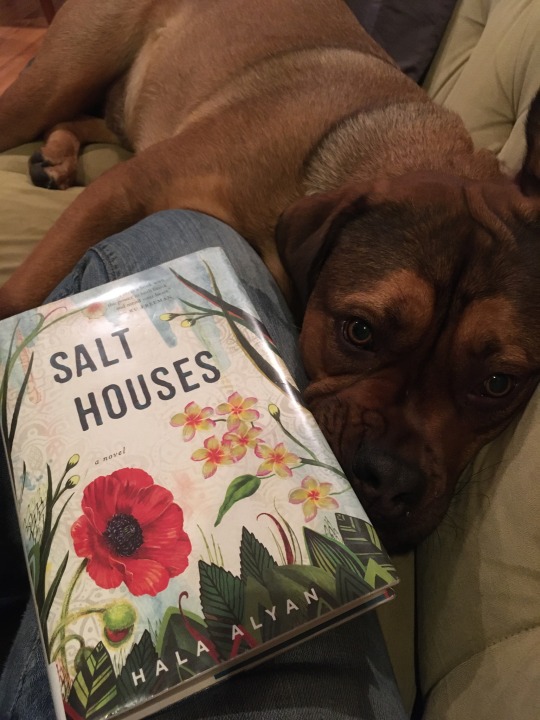
Finished one, started the other
2 notes
·
View notes
Text

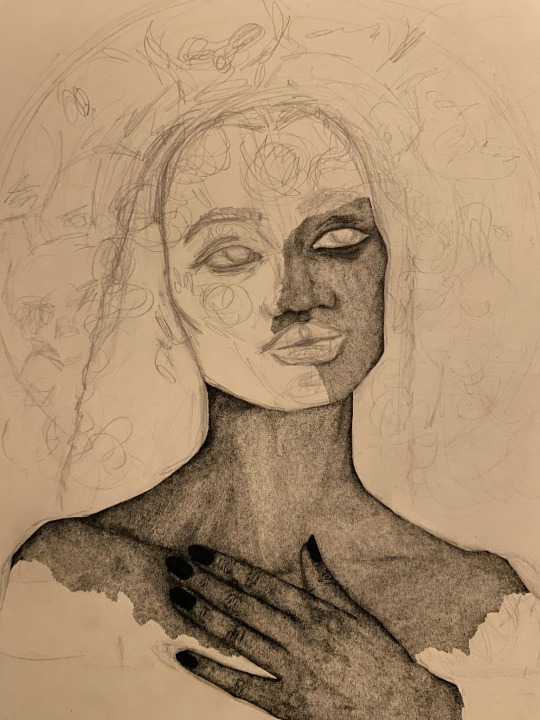



i used to post videos every week about what i was reading. i loved talking about it, but it started to get exhausting! it felt like too much performance tbh. anyway i still want to share in a very low stakes way what i’m working on and what i’m reading. i loved each of these books. i’d love to hear your thoughts if you read them!
0 notes
Text
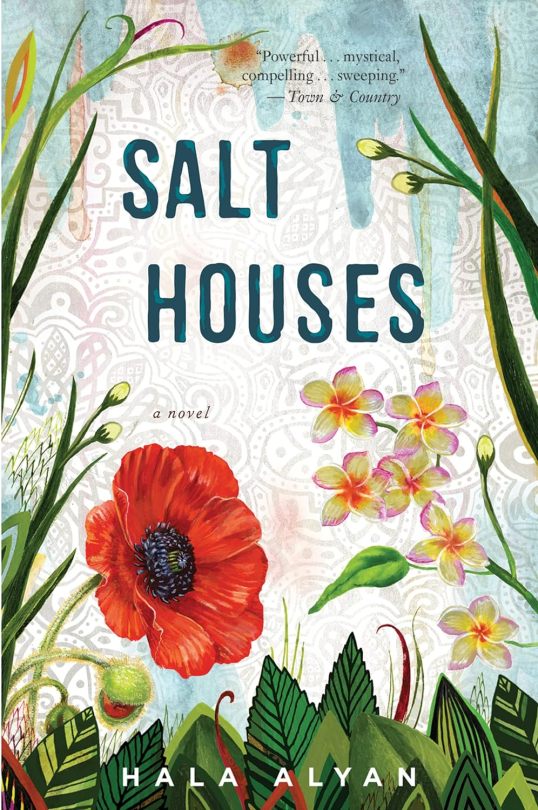
Title: Salt Houses
Author: Hala Alyan
Series or standalone: standalone
Publication year: 2017
Genres: fiction, historical fiction, war, contemporary
Blurb: On the eve of her daughter Alia's wedding, Salma reads the girl's future in a cup of coffee dregs. She sees an unsettled life for Alia and her children, but she also sees travel and luck. While she chooses to keep her predictions to herself that day, they will all soon come to pass when the family is uprooted in the wake of the Six-Day War of 1967. Salma is forced to leave her home in Nablus; Alia's brother gets pulled into a politically-militarised world he can't escape; Alia and her gentle-spirited husband move to Kuwait City, where they reluctantly build a life with their three children. When Saddam Hussein invades Kuwait in 1990, Alia and her family once again lose their home, their land, and their story as they know it, scattering to Beirut, Paris, Boston, and beyond. Soon, Alia's children begin families of their own, once again navigating the burdens and blessings of assimilation in foreign cities.
1 note
·
View note
Text
“catra is a complex poc” fuck that. here are some ACTUAL poc animated characters who are just as, if not more complex than catra.
grace monroe (infinity train) • black american
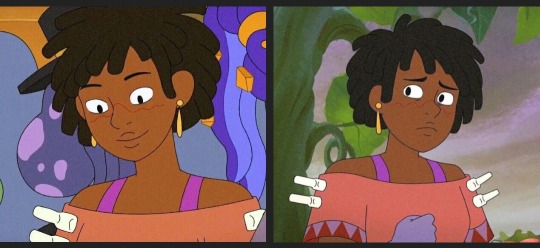
connie maheshwaran (steven universe) • indian-american
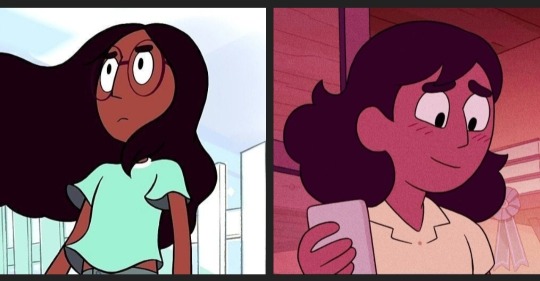
katara (avatar the last airbender) • inuk
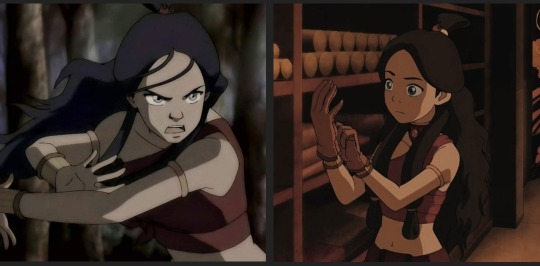
wolf (kipo and the age of wonderbeasts) • black american
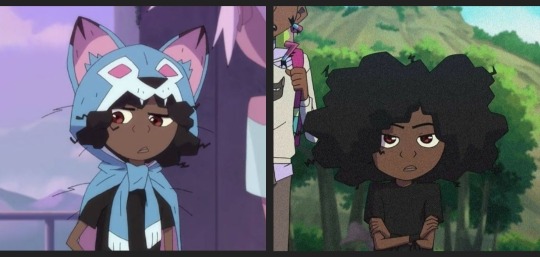
suhara/shadowsan (carmen sandiego) • japanese

korra (the legend of korra) • inuk

jesse cosay (infinity train) • indigenous (apache)
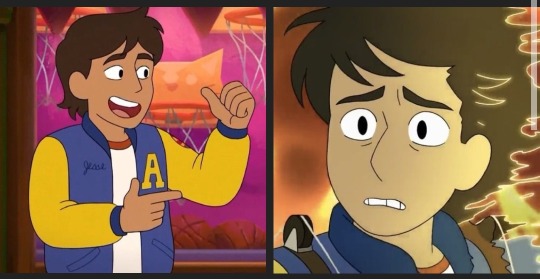
lars barriga (steven universe) • filipino
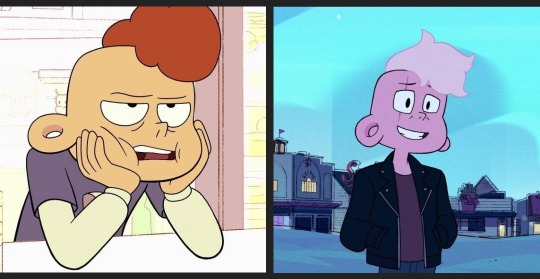
azula (avatar the last airbender) • japanese
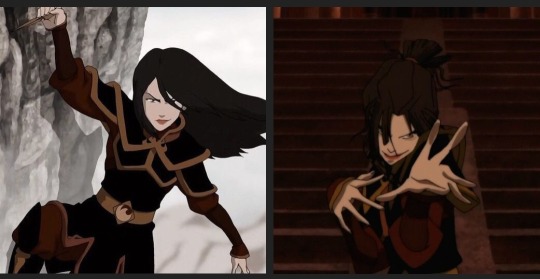
ryan akagi (infinity train) • japanese-canadian
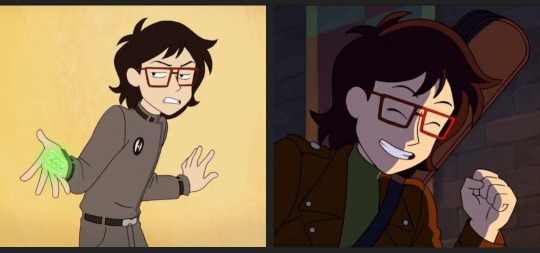
luz noceda (the owl house) • afro-dominican american
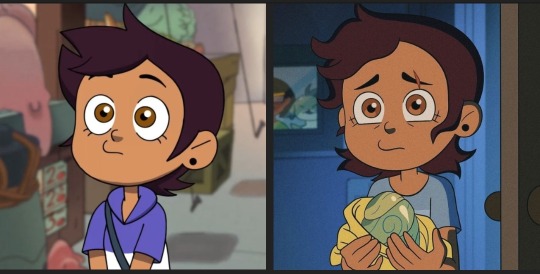
(there are a lot more, so i'll be making a part 2!)
#spop critical#spop salt#spop criticism#spop discourse#spop#she ra#anti spop#the owl house#toh#infinity train#tlok#the legend of korra#korra#avatar the last airbender#atla#kipo and the age of wonderbeasts#carmen sandiego#steven universe#steven universe future
672 notes
·
View notes
Photo
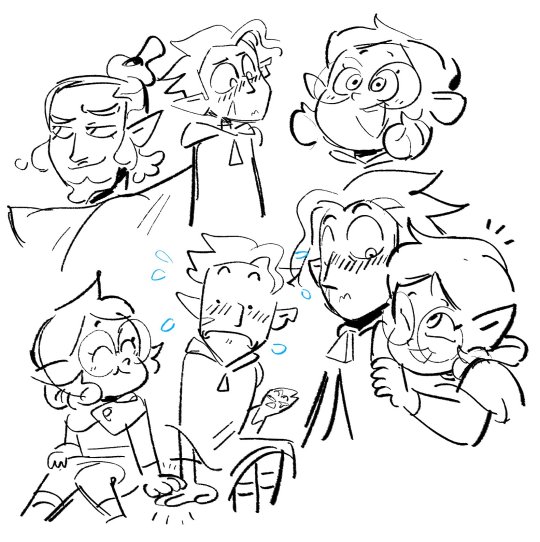


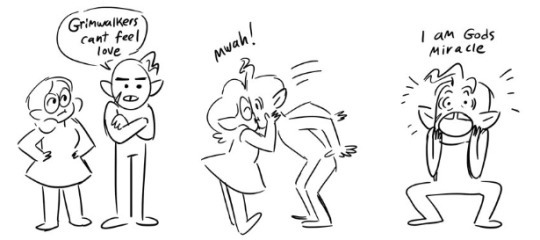
Huntlow crew art by MikeCatSU and EmmyCic
#the owl house#hunter#willow park#huntlow#toh official art#with a grain of salt on official#howl's moving castle
4K notes
·
View notes
Text
someone just told me donna looks like a pepper shaker 😭😭😭😭


#why are they right#i will never recover#lady beneviento#re8#black pepper#salt and pepper#Pepper shaker#residentevilvillage#donna beneviento#house beneviento#is this gonna be a new meme#Help#resident evil 8#resident evil
536 notes
·
View notes
Text
why would I want my favorite characters to get therapy when they are infinitely more entertaining as psychosexual messes
#fandom#fanfiction#interview with the vampire#hannibal#house md#iasip#macdennis#old man yaoi#saltburn#as meat loves salt
299 notes
·
View notes
Text
Asoiaf fandom be like: let's make fun of Arya and Jon for being snob while doing chores.
Meanwhile those two are the only Stark kids who have done labor in their lives and are okay with it. I dare to say that 95% of the rest POV characters would endlessly complain if they were in Arya and/or Jon's shoes.
351 notes
·
View notes
Text
In lieu of my latest reblog about people taking compelling characters and projecting their writing onto some other (usually white) dude, I want to bring up a post I had drafted all the way back from April, but never posted because at the time I still had enough patience not to. But now is different. I do think this analysis is a bit outdated because it doesn’t consider the mediocre white dude angle of Belos that I find paramount, but it’s good enough for my repurposed point.
-
I find it funny when some people complain that the narrative was unfair to Belos despite his “trauma” and circumstances, like there aren’t multiple characters out there who parallel his issues, and get sympathy AND a redemption, in all but one case! Belos is narratively condemned not for what he has in common with others, but for what sets him apart, particularly his stubborn ego. Cases in point;
“Belos deserved to have sympathy for having an unhealthy attachment to his more confident sibling that was mixed with resentment over being abandoned for someone else, culminating in guilt over hurting them and regretting it!”
Lilith exists. She’s motivated by a massive inferiority complex with Eda, Gwen favors her. She’s clearly salty about Eda going off to have fun with Raine, and claims to Luz that she’s Eda’s ‘real’ family. She cursed her sister and felt enormous guilt over it… But in the end, Lilith IS given sympathy by the narrative, and the chance to redeem herself. And she takes just that.
A lot of the people claiming Belos deserved better theorize that stabbing Caleb was an accident, and you know what? So was the permanence of Eda’s curse, Lilith expected it to only last a day and certainly not transform her sister. But Lilith still owned up. And she learned to make other friends while respecting Eda’s boundaries.
“Belos was an orphan raised in a culture that encouraged genocide and a hatred of wild magic!”
Caleb exists, he went through the exact same childhood as Philip, but still chose to change. And while they weren’t orphans at the time, Hunter and the Collector were also raised on genocide, taught to find wild/Titan magic apprehensive. But they loved it instead.
“But Belos actually lost his brother, his loved one died!”
So did Hunter’s! And he was shown to be snappy and aggressive, pouring himself into a mission to cope! But he still owned up, apologized to Willow for rebuking her. He lost Flapjack, and instead of making replicas of his lost loved one to keep to himself, discarding anyone that wasn’t close enough, Hunter made a diverse array of palismen for other kids, to give them the loving relationship he lost! Even his own palisman was clearly carved to be different from Flapjack, reminiscent but still their own thing.
Then there’s Darius, who lost his mentor the previous Golden Guard; His own ‘Caleb’, so to speak! And he was also unpleasant about it, he took his grief out on Hunter, who had nothing to do with this! The canon audio diaries even confirm the apprehension has been going for a while… But Darius realized he was wrong to have projected onto Hunter, made up for this by practically adopting the kid and giving this kid the happy ending his mentor didn’t have; Passing the cycle of kindness the Golden Guard started. And his own grief is pointed out to the audience by Hunter himself.
“They should’ve shown how having a hero complex and a desire to live out a fantasy can corrupt anyone!”
Luz and the Collector. Luz herself makes these comparisons for Belos, and there were times where she hurt her friends trying to live out her fantasy, and/or planned to leave them under the impression she was doing the ‘right thing’. Luz makes a legitimate consideration that she could’ve been Belos, if she refused to listen to others and change. But Luz owned up! As did the Collector, whose escapism and wish to play the role of the ‘hero’, in this case Luz, causes them to do some pretty terrible things. But they still change after being called out, and are still given sympathy over the loneliness and trauma that fueled their escapism, as was Luz.
"Philip struggled with getting over a different type of fantasy, one that relied upon him conquering and hurting others!"
As did King! And King got over that, he quickly learned that other people would always be more important than his fantasies, even if the 'sacrifices' were a lot more minor. King started off the same, the difference is that he still grew up and that's why we judge his antics as so much more light-hearted.
“Well that’s not fair, Philip’s examples were more extreme!”
How about Eda’s curse? Belos never brings up his other sources of trauma as an excuse for his actions, but you know what he does invoke? His curse, claiming to Hunter and Luz that it forced him to act certain ways. But we see Eda, who got a rawer deal with her curse; She didn’t bring it upon herself, as Belos did. She legitimately loses control when it takes over. She scarred and disabled her father because of it, and you know what?
Eda never uses her curse as an excuse. She never lets that justify what she’s done to people, and she even befriends the creature at the source of her curse, the Owl Beast. The curse she deals with is objectively worse, objectively more unfair, than Belos’. But it’s only Belos who actually cites his curse as an excuse, and the palismen at the source of it? He kills them.
“Belos’ cursed form is treated as ugly and evil!”
The palismen amalgam in his mind looked almost exactly the same, to the point where Hunter, who had seen Belos’ cursed form in person before, thought they were identical. But in the end, the palismen amalgam, despite resembling Belos’ cursed form, is a sympathetic and tragic victim who is murdered. Luz and Hunter mistaking him for Belos is justified, but it’s also still regrettable that they are judged by appearances.
“It hurts people to sacrifice their morals for the greater good, you know!”
Raine did that, they felt compelled to drag Darius and Eberwolf (one of whom was a childhood friend) into a murder-suicide, because as far as they knew, they were already going to be caught and executed, so may as well take their oppressors down with them! And they aren’t called out for it, because they couldn’t have known about Darius’ actual intentions…
Because in the end, sometimes you have to punch a fascist, and sometimes you have to oppose a friend or loved one because they took the fascists’ side. It’s why Lilith is expected to change for Eda, not the other way around. Raine is not the aggressor here, it’s all from the principle of self-defense for themselves and the isles as a whole.
And in the end, it’s because Raine is approaching from a place of actual good intent and moral concern that there are lines they still refuse to cross; As soon as they learn about Luz and King, they sabotage their own plans because they refuse to orphan these kids they just found out about for the ‘greater good’. When one of those very kids, Luz, makes Raine promise to keep Eda safe, you can see the conflict between their morals and their obligations in their eyes as Eda accepts the Bard sigil, and ultimately Raine powers through the draining spell to save Eda’s life, simply because Luz asked them to.
I’ve talked since their debut of how Raine has some similarities to Belos, in particular how they both work their whole lives to infiltrate a group from within to topple it, even as they publicly support it as a celebrated leader. They both had to lie and work under the radar, and make effective rhetoric; They each wear their own masks. Raine has to constantly lie to and rebuke Eda about being brainwashed, and we can see the moral agony it gives them!
But Raine is opposed to a legitimate threat, whereas Belos is completely making one up; Raine has to work under the micro-management of tyrants with control over them, Philip has been free from his colony for centuries, and even after finding out Gravesfield gave up on its witch hunting mission in the present, still traps himself of his own will. Belos feels no guilt for any of his ‘necessary evil’.
Raine had actual morals unlike Belos that they did sacrifice, for an actual greater good, and they actually hurt over these choices. They dedicated their whole life to stop a dark and twisted parallel, which makes their inclusion in the finale as the only person outside of the core trio to help against Belos all the more deserved; They even help deliver the killing blows. And Raine is rewarded for all of their effort, allowed to see it come to fruition and rest happily afterwards, because they really were sincere, and actually did make sacrifices, something Belos preaches but never follows. Most importantly, Raine knew they couldn’t justify everything even for their morally-justified mission.
“Belos was still legitimately wronged by Caleb for nothing, he didn’t deserve to be abandoned!”
Even if we believe Caleb did ‘abandon’ Philip or whatever; The Collector was legitimately wronged by the Titan, imprisoned and isolated for millennia despite being innocent. But while he justifiably calls the Titan a bully, he never takes this out on King, or any other Titan for that matter, remembering the rest with love. Nor is the Collector expected to forgive the Titan; The Titan accepts she made the wrong call. After all, imprisoning the Collector left them in a vulnerable state to be exploited by Belos, and give him the draining spell…
The Titan and Caleb’s mistakes were very much that, but the Collector matured for others, without needing an apology from the dead person who wronged him. And based on what we see of Belos’ memories, Caleb probably DID get to deliver that apology when he was alive, and Philip still insisted on being bitter!
“His only childhood friend just ditched him for someone else!”
That’s what happened to Willow, and that’s how she understood it for most of her life; Amity leaving her behind because she was too weak, and kids like Boscha and Skara were more popular, stronger, etc. But not only does the show say her rage against Amity is totally warranted and that the onus is on Amity to apologize, even if she didn’t choose to leave Willow (keep in mind she still saw Willow as a weak person to protect without input, as we later see in Labyrinth Runners)…
Willow is still kind. She still opts to be compassionate to Gus, and to Luz, and in general a nurturing person despite her abandonment. And when Willow is given the chance to take revenge on Boscha by stealing her glory in Grudgby, she doesn’t kick the girl while she’s down to do so; But Willow is also allowed to still hold anger towards Boscha, as we see in Season 3. And assuming Caleb wasn’t malicious about leaving Philip behind, we clearly see how he welcomes his brother back and wants things to get better, just as Amity does; He had his own side of the story. And Willow doesn’t kill Amity despite being primed to very easily do so…
"But imagine finding out they CHOSE to leave you, when you thought they didn't!"
Camila?!?! In fact, Camila was THE precedent for this, and people went and applied her tragic scene to Philip to make HIM into some angsty sadboi! And last I checked, Camila didn't exactly murder Luz... Plus, Philip had infinitely more time to see Caleb and Evelyn interact, and thus figure out that Caleb wasn't being kidnapped or brainwashed; Compare that to Camila who is just dunked into that situation out of nowhere, and is barely even adjusting to Vee's existence on top of finding out Luz was someplace else the entire time, and dealing with Jacob.
"A lot of family members at least start off as well-intentioned when hurting loved ones, they could've shown that!"
Bold of you to assume that Belos' selfish entitlement towards Caleb is the same as Camila or Gwen's legitimate concerns for their daughters; They did unconditionally love and they were misguided. But when shown they were causing pain, they actually shifted gears instead of focusing on how they were fight because they knew better. And what they were doing WAS still harmful, even though they DID care.
“Belos was probably a weirdo himself, and suffered from internalized hatred for his deviancy!”
Lilith dyed her hair to fit in with the coven, and be taken seriously. Amity suppressed herself to be a stoic perfectionist, constantly trying to justify her own existence as she says; She had to work to be good at magic while others like Gus, Emira, and Edric were naturally talented, and was made to hate those who weren’t successful as witches. Hunter too loathed his own lack of bile magic!
Most tellingly, Camila herself was taught to hide her weirdness, grew up thinking she was successful for doing that, and even tried to impose the same on Luz because of that misconception! But Camila realized what was done to her was wrong, and the same applied to her daughter; Accepting Luz’s weirdness meant accepting her own.
“Even if he still chose to double down in villainy, Belos could’ve at least been given a moment where he was sympathetic, where his sadness was shown, before nevertheless deciding his fate!”
Kikimora had an entire episode where she agonized over her obligations to a mother that seemed low key abusive, given her threat to disown her. We see her hesitate, cry, and be legitimately disappointed when she’s rewarded for staying with Belos by ‘getting to live’, a reward that doesn’t even last by the Day of Unity! Even after Kikimora makes her choice to betray Luz and Amity, we still get a final scene of her looking uncertain and even regretful of her decision, before she commits. Kikimora isn’t redeemed but is still humanized, despite being less human than Belos, so to speak.
She’s even a dark parallel to Lilith, having jealousy towards the Golden Guard, an emotionally abusive mother, and an inferiority complex towards other members of the coven despite working directly with Belos! And she is given many chances to escape Belos, a few months where she is legitimately free from him, and chooses to remain in her ways because Kikimora’s difference with Lilith isn’t that life was more unfair to her, it’s that she refused to change.
Now this is a bit out there, but there’s also the other Coven Heads! Mason, Vitimir, Hettie, and Osran! The show was shortened, so who knows what they could’ve provided for the story… Mason, Hettie, and Osran especially, since they’re not included amongst the coven head loyalists who still cling to power, even after Belos’ death. The show could’ve easily set up sympathetic moments to indicate a possibility of change, paying off in the epilogue; But because of Disney, you can’t blame the writers for not delivering everything they could’ve.
“How about a character who was just… an asshole, no outside reason given?”
Boscha, who was popular and privileged. While she does allude to some pressures that motivate her, as far as we know, there wasn’t really anyone or anything that made her be so cruel towards those she perceives as lesser. But despite this, Willow doesn’t see any point in trying to take Boscha’s spotlight as a Grudgby captain, when offered by her teammates; She doesn’t kick Boscha when she’s down. And Boscha is ultimately still recognized as unhappy with the loss of her friends, so even if she does do egregious things during the Collector’s reign, Amity offers Boscha the chance to become better and improve, as she did. And she takes it!
“Well, none of these characters had to grapple with having done things nearly as bad as Belos!”
And why do you think that is? Why are Belos’ sins so monumental in comparison, how did they get so bad? Because he kept refusing to change, kept refusing each opportunity, and got worse because of that. His first confirmed murder was Caleb, who right beforehand embraced his brother during what appeared to be a manifestation of the curse. But Philip still chose to commit his first sin despite receiving such unconditional sympathy, because he wanted control, not happiness. He didn’t start off as a genocidal dictator, he worked his way up to that over centuries.
“They make it seem like Belos was born evil!”
Our earliest chronological appearances of Philip are as a happy, carefree child who plays games with the brother he loves and looks up to; That isn’t the portrayal of someone ‘born’ evil. This is the portrayal of someone who became that way, over time, because he refused to concede anything to anyone, and wore away what decency he had across centuries, until we see the Emperor that Belos is when the show starts.
An evil dictator who ravaged an entire world for hundreds of years came from an innocent little kid, and Luz becomes self-aware of how this can apply to her, even as she’s reminded that she also ISN’T like Belos because of this critical reflection and willingness to listen. Belos, on the other hand, consciously cultivated an echo chamber for centuries, killing any Grimwalker he felt disagreed with him, despite their unconditional love and support. He deliberately shut himself off from the isles and ignored the kindness of others.
Bump reminds Faust that it’s disingenuous to project malice onto children who often simply don’t know any better, and just need to be given a chance to be taught and educated. But kids also have to take initiative to mature when they get older, hence why we hold adults more responsible; The established logic is that Belos wasn’t an evil child, he was simply a child who never grew up and that’s where his evil came from, rather than being some pre-existing source.
To be honest, I think the narrative doesn’t bother showing sympathy to Belos over his trauma because he’s already HAD more than enough sympathy, across centuries, from his brother, the Grimwalkers, his followers, even Luz and the Collector! So the story doesn’t feel the need to waste tears on someone who already got them, and instead focuses sympathy to characters who haven’t received as much, if any; People like Lilith, Amity, Hunter, etc.
Belos is the culmination of other characters’ traumas (who prove you can still choose to be better and happier despite these things), and was practically coddled by the people in his life for it. But he still chose to be bitter, never opened up to accept help, and his rejection brought even more pain that he could only blame on himself. Belos’ only tragedy is his refusal to change for the better; Even the narrative has made it clear he had chances, tears wept for him by people he knew.
He is a mirror to so many characters, what could’ve happened if they looked at their own pain and used it as justification to continue lashing out, because clearly they are the underdog heroes who have been wronged and are fighting against an injustice, right? The hero of their own story, if you will. Hell, we still also get that with Kikimora, as I just said! What I’ve listed is not a double standard, but rather proof that Belos was not uniquely condemned by his circumstances, for he is alike many characters as I mentioned. And Belos does not need to be portrayed “sympathetically” in order for the audience to understand the relevance of these parallels; Namely, that Belos has no excuse to still be like this when those similar nevertheless choose not to be cruel, and will accept others’ compassion.
And besides, with how the show was shortened… Who’s to say the writers didn’t plan to throw Belos a sympathetic moment of genuine loneliness, before doubling down? Not that they really would’ve needed to. But if they planned it, the writers had to leave it out to prioritize the weirdos this show is actually about, due to the shortening.
#the owl house#emperor belos#philip wittebane#lilith clawthorne#caleb wittebane#the owl house hunter#darius deamonne#Luz Noceda#the owl house collector#king clawthorne#Eda clawthorne#edalyn clawthorne#raine whispers#camila noceda#the owl house boscha#fandom salt#white favoritism
219 notes
·
View notes